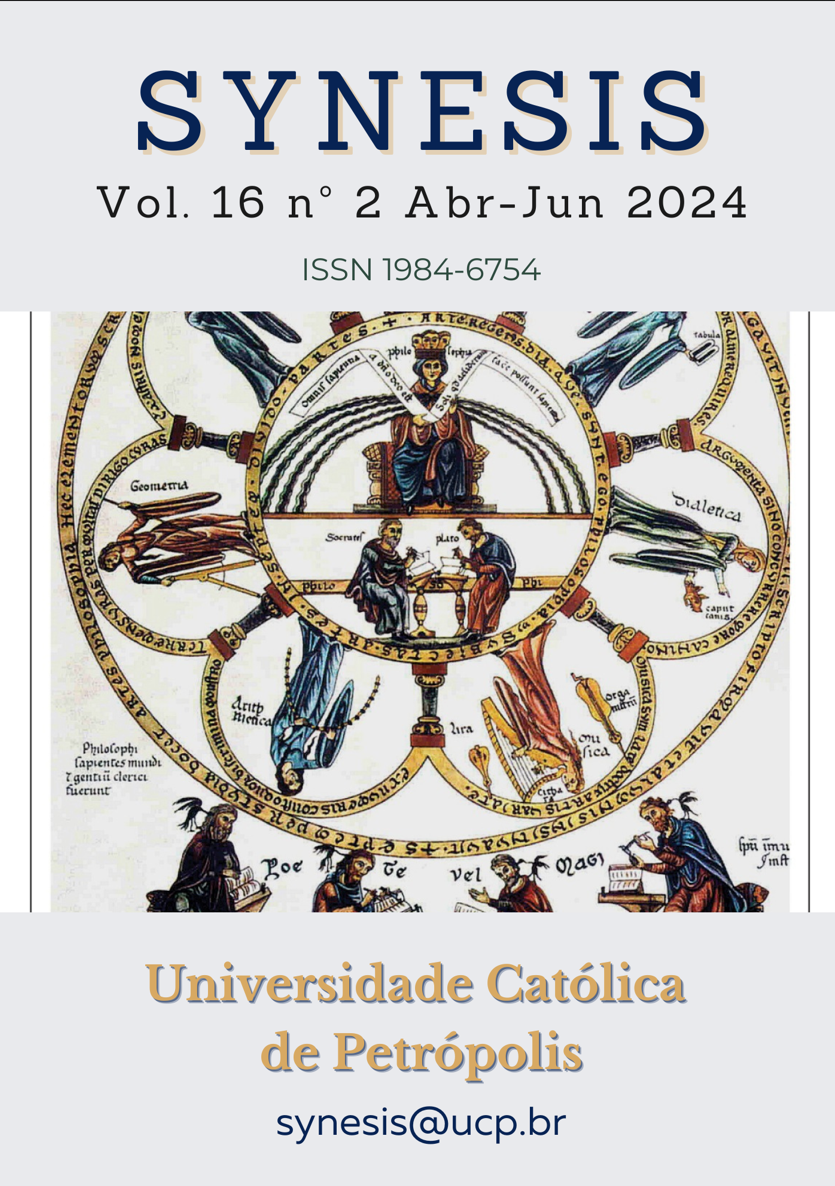Abstract
Using the example of the analysis of queer-oriented education, it was demonstrated that queering philosophy can be adopted as a basic philosophical approach not only when considering the issue of gender, its change and plurality, but also when considering any situation of social multiple identity. It was revealed that addressing queer issues within the framework of gender education development opened up an opportunity to address much broader issues of social justice in education, and not just the protection of the rights of gender minorities. Queer pedagogy creates better opportunities for freely discovering and creating the identity of a person as a multiple identity – based on taking into account gender, race, nation, age, disability, class, religion, as well as the other previously unknown and unknowable characteristics of personal identity. The application of queering philosophy as a methodology of queer theories in education reveals the strengths and weaknesses of the main principles of queering philosophy proposed by Kim Q. Hall – critical remembering, smuggling, and recruitment. The strengths are the creation of an atmosphere of multiple normativity; solving other social justice issues in education, as well as other self-discovery tasks; the involvement of all known and still unknown forms, types and components of a person's identity. Weaknesses are the danger of getting caught up in criticizing old forms of identity and losing focus on creating new ones or accepting all new versions of identity without critically evaluating them; residual dependence on the emphasis on gender education as a priority.
References
Bauman, Zygmunt. Liquid Modernity. Cambridge: Polity, 2000.
BOICHENKO, MYKHAILO; SHEVCHENKO ZOYA; RYLOVA, OLHA; KARPENKO, IVAN; GUZHVA ALLA. Conceptual levels of the managing of gender conflicts in the field of education in the framework of sustainable development of society. SHS Web of Conferences 141, 03013. 2022. https://doi.org/10.1051/shsconf/202214103013
BOYCHENKO, M. I., SHEVCHENKO, Z. V., PITULEY, V. V. The role of biological and social factors in determining gender identity. Anthropological measurements of philosophical research, v. 15, p. 11-21. 2019. https://doi.org/10.15802/ampr.v0i15.169468
Butler, Judith. Gender Trouble: Feminism and the Subversion of Identity. New York and London: Taylor & Francis, 2011.
Dubbs, Christopher H. A queer turn in mathematics education research: centering the experience of marginalized queer students. In: Wood, M. B.; Turner, E. E.; Civil, M.; ELI, J. A. Proceedings of the 38th annual meeting of the North American Chapter of the International Group for the Psychology of Mathematics Education. Tucson, AZ: The University of Arizona, 2016. p. 1041-1048.
Ferguson, R. A. One-Dimensional Queer. USA: Polity, 2018.
Foucault, Michel. The History of Sexuality. Volume 1, An Introduction. Translated from the French by Robert Hurley. New York: Pantheon Books. 1978.
GREEN, A. I. Queer Theory and Sociology: Locating the Subject and the Self in Sexuality Studies. Sociological Theory, v. 25, n.1, p. 26–45. 2007. https://doi.org/10.1111/j.1467-9558.2007.00296.x
GRETEMAN, ADAM J. Helping Kids Turn out Queer: Queer Theory in Art Education. Studies in Art Education, v. 58, n. 3, p. 195–205. 2017. https://doi.org/10.1080/00393541.2017.1331089
Hall, K. Q. Queering Philosophy. USA: Rowman & Littlefield Publishing Group, 2022.
hicks, b. l. To Do This Discussion Differently: Drawing Queerness in Education. Research in the Teaching of English, v. 55, n. 2, p. 187-190. 2020. Available at: https://www.jstor.org/stable/27116898
Ingrey, J. C. Queer Studies in Education. In: Oxford research encyclopaedia of education. 2018. https://doi.org/10.1093/acrefore/9780190264093.013.249
Kant, Immanuel. Kritik der reinen Vernunft. In: Kants Gesammelte Schriften. Berlin, Reimer, 1904. Bd.3.
Linville, Darla. Introduction: Queering Education. In: Linville, D. Queering Education: Pedagogy, Curriculum, Policy. Occasional Paper Series 37. Bank Street College of Education, 2017, p. 4-12. https://doi.org/10.58295/2375-3668.1176
MARCUS, SHARON. Queer Theory for Everyone: A Review Essay. Signs, v. 31, n. 1, p. 191–218. 2005. https://doi.org/10.1086/432743
NELSON, CYNTHIA. Why Queer Theory is Useful in Teaching. Journal of Gay & Lesbian Social Services, v. 14, n. 2, 43-53. 2002. https://doi.org/10.1300/J041v14n02_04.
Pennell, Summer M. Queer Theory/Pedagogy and Social Justice Education. In: Papa, R. Handbook on Promoting Social Justice in Education. Springer, Cham, 2020. https://doi.org/10.1007/978-3-030-14625-2_103
Pennell, Summer M. Queer Transgressive Cultural Capital. In: Rodriguez, Nelson M.; Martino, Wayne J.; Ingrey, Jennifer C.; Brockenbrough, Edward. Critical Concepts in Queer Studies and Education An International Guide for the Twenty-First Century. New York: Palgrave McMillan, 2016. p. 319-328.
Shelton, Stephanie. “White people are gay, but so are some of my kids”: Examining the intersections of race, sexuality, and gender. In: Linville, D. Queering Education: Pedagogy, Curriculum, Policy. Occasional Paper Series 37. Bank Street College of Education, 2017, p. 109-129. https://doi.org/10.58295/2375-3668.1089
Sedgwick, E. K. Epistemology of the Closet. Great Britain: University of California Press. 1990.
SHEVCHENKO, Z. V.; FIALKO, N. A. The normativity of multiple social identity: from motivation to legitimacy. Anthropological Measurements of Philosophical Research, v. 22, p. 58–66. 2022. https://doi.org/10.15802/ampr.v0i22.271328
STOCKBRIDGE, K.; BLEASDALE, J. Introduction: At the Intersection of Queerness and K-12 Education. Journal of Homosexuality, v. 69, n. 12, p. 2003–2006. 2022. https://doi.org/10.1080/00918369.2021.1984784
Thomas, W. I.; Thomas, D. S. The Child in America: Behavior Problems and Programs. New York: A.A.Knopf, 1928.
Thomas-Reid, Matthew. Queer Pedagogical Theory. In: Oxford Research Encyclopedias: Education. 2021. https://doi.org/10.1093/acrefore/9780190264093.013.1398
RIDEOUT, A. M. (2023). Equity in Music Education: Incorporating Queer Theory into Culturally Responsive Teaching. Music Educators Journal, v. 110, n. 2, p. 59-63. https://doi.org/10.1177/00274321231218585
UNWIN, S.; STARCEVICH, R.; LEMBO, S.; DOBSON, M. On becoming a queer educator: reflections on queer perspectives and approaches in initial teacher education. Continuum, p. 1–18. 2024. https://doi.org/10.1080/10304312.2024.2335505

This work is licensed under a Creative Commons Attribution-NonCommercial-NoDerivatives 4.0 International License.
Copyright (c) 2024 Synesis (ISSN 1984-6754)

